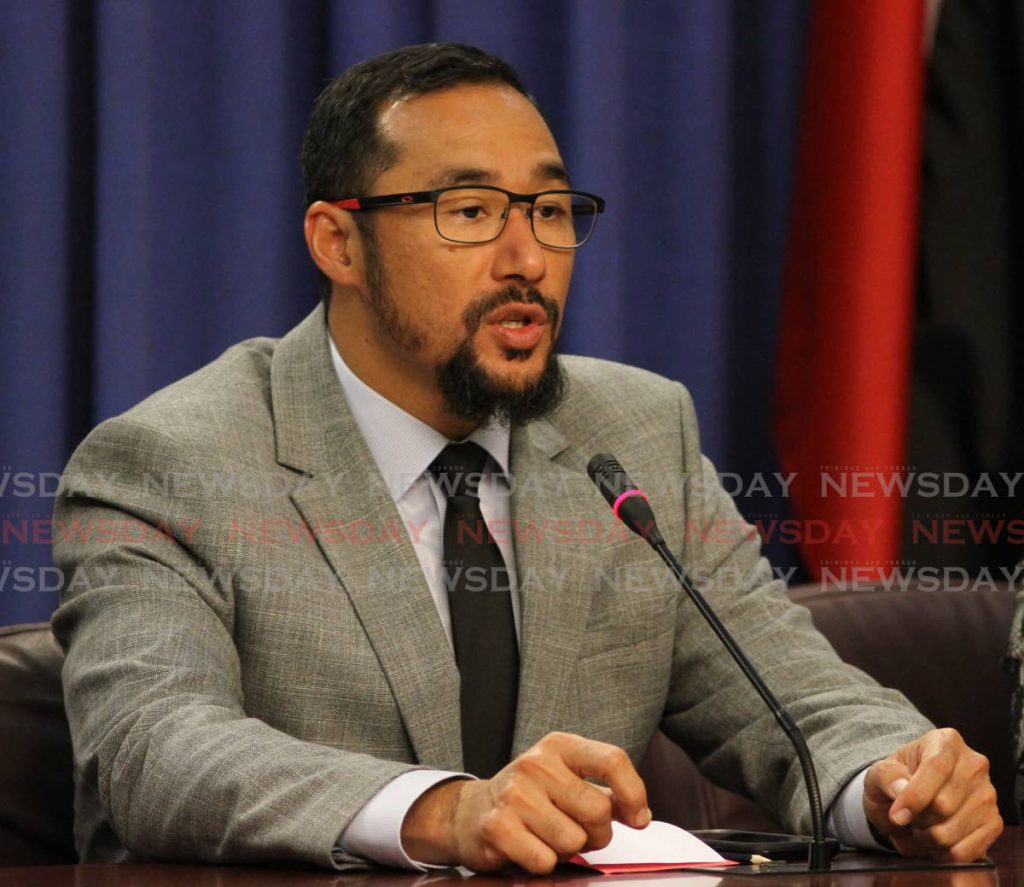Young plans low-carbon energy future for Trinidad and Tobago

Minister of Energy and Energy Industries Stuart Young said at the first day of the Energy Conference 2021 that Trinidad and Tobago needs to balance its demand for energy with the transition to clean energy.
To do this, Young said TT needs to invest in low-carbon technologies.
“As countries and corporations trend to a carbon-neutral world, the reality is that the increase in energy demand by a growing global population, rising incomes and poverty-alleviation measures cannot be met in the medium term by renewable technologies and energy efficiency.
"The key to the abatement of the negative impacts is the investment in low-carbon technologies and the rebalancing of portfolios. We believe that TT is well positioned to add value to the balance sheets of the stakeholders invested here,” Young said.
Taking into consideration the growing demand for energy as TT develops, and well aware of the effects of carbon emissions and their relation to climate change, Young said the government took a number of measures to lessen TT’s carbon footprint.
In transport, the government promoted the use of CNG as a cleaner alternative to gas.
New capacity in power generation is being created through solar energy. The Joint Venture Solar Park project in collaboration with BP and Shell is also being completed, and discussions are beginning on introducing hydrogen energy.
Young added that the ministry is exploring the measures of carbon capture, utilisation and storage.
Even carbon emissions can be sequestered and used in a process called “carbon flooding” to improve oil production. Young said TT emits about 40 million tons of carbon every year.
“There is a lot of opportunity here in TT, as the plants in the gas sector can be transformed, with the right investments, to ensure cleaner and lower carbon energy,” Young said. “We will continue to work with the various downstreamers, as there are also exciting opportunities in ammonia, methanol and other commodities.”
An alternative form of energy is not being focused on alone. Young said he started engaging with upstream stakeholders to find out what is needed to bring all projects online.
“This conversation has already started with the state oil company, Heritage Petroleum Company Ltd, which possesses the majority of the country’s prospective crude oil resources. In our consultation, the company has mapped out an action plan aimed at optimising exploration and development of its acreage on land and in marine areas.
"A key element in the action plan is attracting private investment, which has shown a renewed interest in oil exploration with the improvement in the oil price. In this regard, the company has issued new land sub-licences to a number of operators and executed a joint-venture agreement with EOG Resources Ltd for the development of acreage in southwest Soldado.
"The company is also currently reviewing expressions of interest from several parties in respect of its Jubilee field, which is a candidate for EOR CO2 (enhanced oil recovery carbon dioxide) flooding.”
Young added that the ministry has approved a pilot project operated by Columbus Energy, which has the potential to recover up to nine million barrels.
“The movement to a carbon-neutral world is consistently evolving, and as policymakers we depend on your expertise and advice in the setting of goals and structuring of strategies for their achievement. I therefore look forward to the outcome of your deliberations.”

Comments
"Young plans low-carbon energy future for Trinidad and Tobago"